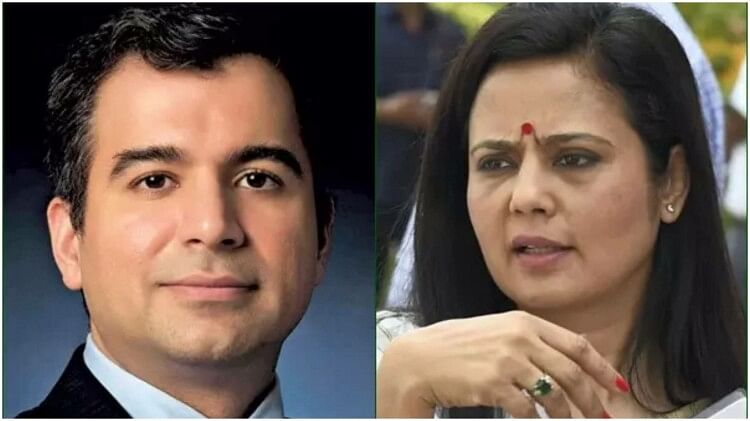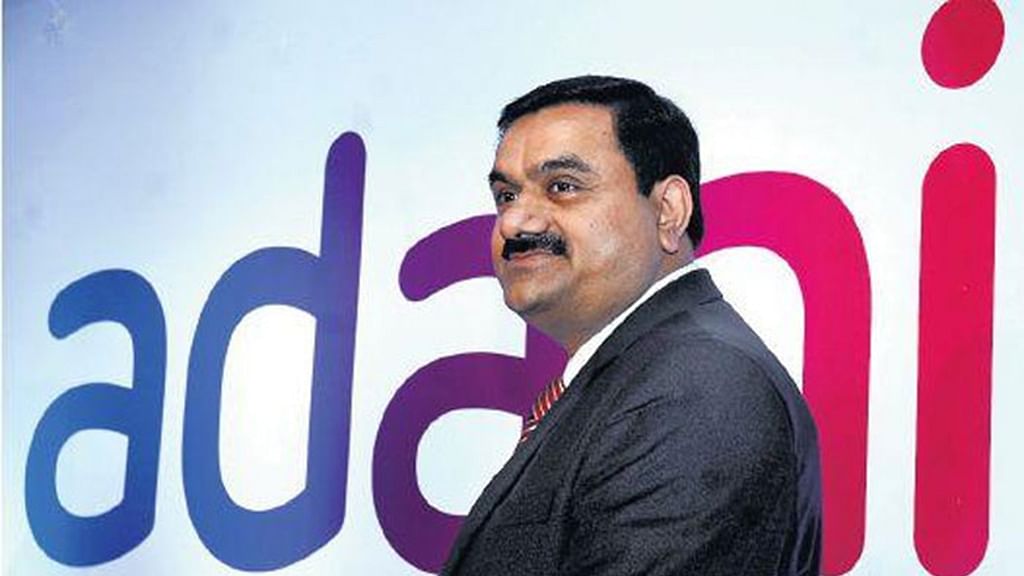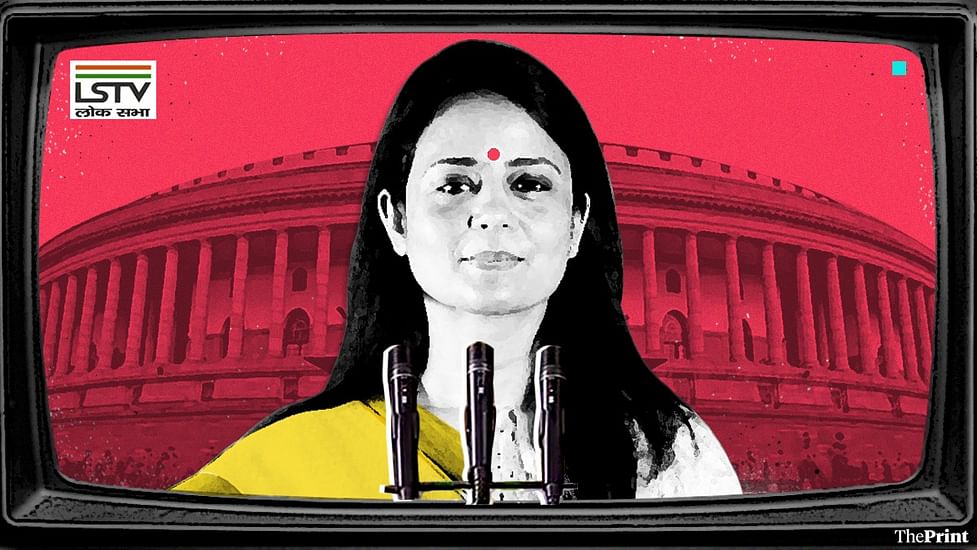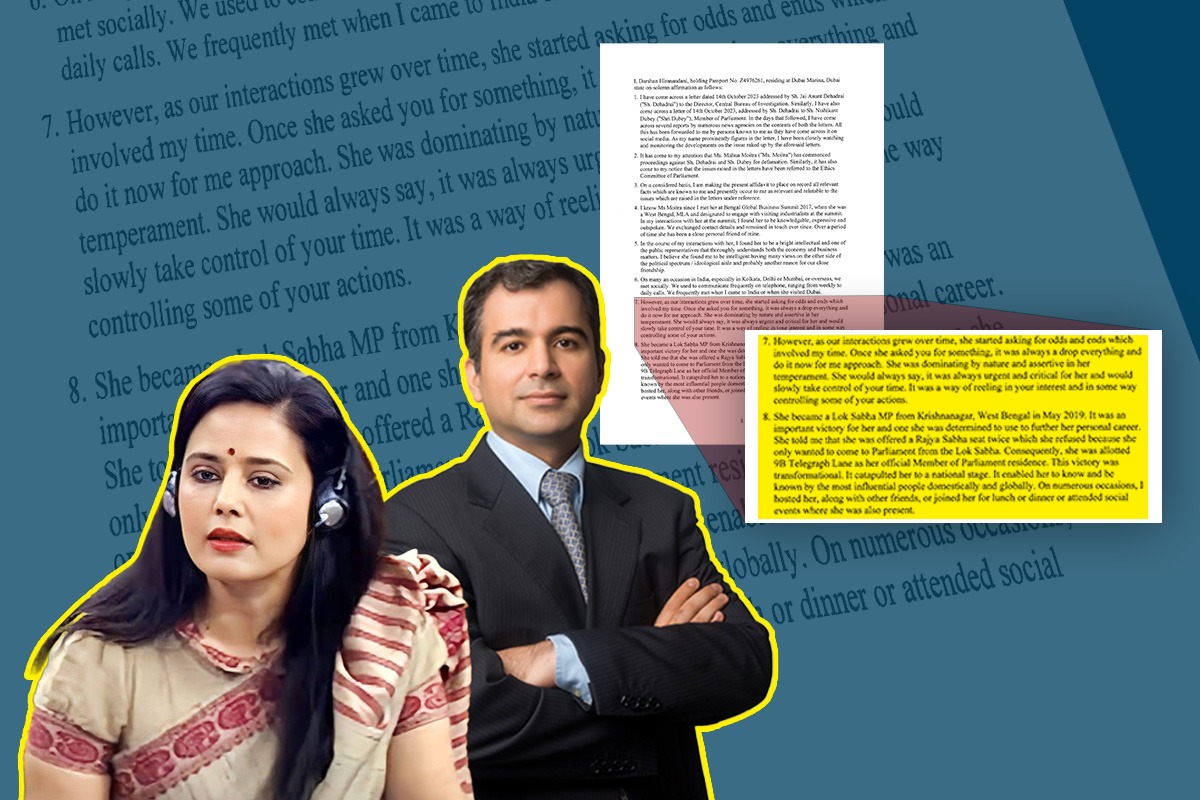Mahua Moitra, The ‘Cash-for-Query’ Controversy Is A Grave Threat To Parliamentary Integrity And An Example Of Business Rivalry; Should The One Taking The Bribe And Giving The Bribe Not Be Arrested?
The recent expulsion of Trinamool Congress (TMC) leader Mahua Moitra from the Lok Sabha in the 'cash-for-query' scandal sends shockwaves through the foundations of parliamentary integrity, raising critical questions about the conduct of elected representatives. The seriousness of the matter cannot be overstated, as it involves allegations of corruption, breach of parliamentary ethics, and the very foundation of democratic principles. To add more to the gravity of the situation - Darshan Hiranandani, a prominent figure associated with the Hiranandani Group, a renowned real estate development company in India, the scandal suggests a clandestine business rivalry with the Adani Group, a major competitor and said to enjoy 'favouritism' tag, also giving and taking bribe in India is a crime - hence should Darshan Hiranandani not be arrested?

Mahua Moitra, The ‘Cash-for-Query’ Controversy- Politics, Business Rivalry And The Citizens
The motion, presented by Union Minister Prahlad Joshi and passed through a voice vote, solidified the decision to remove Moitra from the House.
Speaker Om Birla, echoing the findings of the Ethics Committee, stated that Moitra’s conduct as a Member of Parliament was deemed immoral and indecent, making her continuation in the position inappropriate.
The genesis of this controversy lies in the accusations brought forward by BJP MP Nishikant Dubey, who claimed that the TMC had engaged in a quid pro quo arrangement, exchanging parliamentary questions for cash and gifts from businessman Darshan Hiranandani.
The gravity of the allegations is heightened by the fact that they pose serious questions about the very integrity of the parliamentary system.
The Ethics Committee’s investigation, which culminated in a recommendation for Moitra’s expulsion, unearthed damning evidence of her accepting money in exchange for posing specific questions in the Lok Sabha.
The severity of the findings led to a heated debate in the Lok Sabha, where the Opposition, led by Congress’s Adhir Ranjan Choudhary, sought more time to scrutinize the committee’s report; however, their request was denied by Speaker Om Birla.
.jpeg)
The Story So Far
The heart of the matter revolves around the ‘cash-for-query’ case, where Moitra confessed to providing her Parliament login ID and password to Darshan Hiranandani, enabling him to submit questions on her behalf.
While Moitra defended this action as a matter of convenience, Hiranandani alleged that he paid bribes to Moitra in exchange for posing questions that would tarnish the reputation of the elected government.
The unfolding of events raises several pertinent questions –
Should Hiranandani, who has admitted to offering bribes, not face legal consequences in India?
The act of bribery is a crime, and the government should act impartially in upholding the law. Furthermore, the acceptance of a bribe to defame the country’s elected head, the Prime Minister, raises concerns about the broader implications of such actions on the democratic fabric.
Amidst the controversy, the fairness of the Ethics Committee’s procedures has been called into question.
Congress’s Manish Tewari highlighted the lack of procedural justice, emphasizing that Moitra was not allowed to fully make her statement or cross-examine her accuser; on the other hand, the speaker, while acknowledging the parliamentary setting, emphasized the need for tough decisions to uphold the dignity of the House.
‘Cash-for-Query’ Scandal, A Grave Threat to Parliamentary Integrity
The ‘cash-for-query’ scandal, this egregious incident involving accusations of corruption, bribery, and misuse of parliamentary privilege, strikes at the heart of the democratic values that our nation upholds.
The gravity of the matter is amplified by the fact that Mahua Moitra, a Member of Parliament elected by the people, stands accused of accepting money in exchange for leveraging her position to ask specific questions in the hallowed halls of the Lok Sabha.
Such allegations undermine the trust bestowed upon elected officials, eroding the very essence of representative democracy.
The motion for Moitra’s expulsion, presented by Union Minister Prahlad Joshi and swiftly passed through a voice vote, indicates the severity of the findings by the Ethics Committee.
Speaker Om Birla’s declaration that Moitra’s conduct was both immoral and indecent as an MP raises concerns about the ethical standards upheld by those entrusted with the responsibility of shaping the nation’s future.
The ‘cash-for-query’ scandal, as alleged by BJP MP Nishikant Dubey, not only tarnishes the image of an individual but casts a dark shadow on the entire parliamentary system.
Accusations of trading parliamentary questions for cash and gifts from businessman Darshan Hiranandani strike at the core of public trust in the democratic process.
The implications of such actions extend beyond the individual involved, affecting the faith that citizens place in their elected representatives and the legislative process.

Who Is The Infamous Darshan Hiranandani?
Darshan Hiranandani is known for being a prominent figure associated with the Hiranandani Group, a renowned real estate development company in India.
The Hiranandani Group, founded by his father, Lakhumal Hiranandani and uncle Niranjan Hiranandani, has played a significant role in shaping the real estate sector in India. The family has been involved in diverse businesses, including real estate development, education, hospitality, and healthcare.
The Hiranandani Group is particularly known for its township projects. One of the flagship developments is the Hiranandani Gardens in Powai, Mumbai, which has become an iconic and self-sustained township with residential, commercial, and recreational facilities.
Over the years, the Hiranandani Group has diversified its portfolio, venturing into the development of townships, residential complexes, IT parks, and commercial spaces. This diversification has contributed to the group’s standing as a major player in the Indian real estate market.

The Obvious Business Rivalry – Adani Group and the ‘Cash-for-Query’ Scandal
The ‘cash-for-query’ scandal involving Trinamool Congress (TMC) leader Mahua Moitra suggests a clandestine business rivalry between the Hiranandani Group and the Adani Group, a significant competitor operating in the same sector.
However, exploring this scenario reveals the potential implications of business rivalries seeping into the political arena.
The Allegations
It could perhaps be assumed that the ‘cash-for-query’ allegations are not just an instance of corruption but rather part of a larger strategy orchestrated with vested interests.
Here, Darshan Hiranandani, connected to a rival business faction, accused Moitra of accepting money in exchange for leveraging her parliamentary position to tarnish the reputation of the Adani Group.
Adani Group as the Target
The motivation behind this business rivalry stems from the intense competition prevalent in the business sector. With the Adani Group securing numerous projects and enjoying ‘favour’ in various government initiatives, the rival faction resorted to unconventional tactics to level the playing field.
The ‘cash-for-query’ scandal, thus, becomes a tool to discredit Adani’s reputation and influence public perception.

Political Fallout
As the events unfold, the political fallout becomes increasingly severe. The scandal, originally framed as an instance of corruption, takes on a new dimension – in this scenario, questions emerge about the influence of business rivalries on the political process.
Should allegations of corruption be viewed differently when rooted in corporate competition?
How can the political arena safeguard itself from becoming a battleground for business disputes?
The Last Bit, As the nation grapples with the aftermath of this scandal, one must reflect on the seriousness of the matter at hand.
Elected officials are entrusted with the solemn duty of representing the aspirations and concerns of the people, and any deviation from this sacred responsibility not only undermines the democratic principles our nation cherishes but also erodes the public’s faith in the entire political system.
The ‘cash-for-query’ truly indicates that the actions of those in power should carry profound consequences.
The need for transparency, accountability, and ethical conduct within the hallowed halls of Parliament has never been more pressing, and as citizens, we must demand and ensure that our elected representatives uphold the highest standards of integrity, safeguarding the sanctity of the democratic process.





